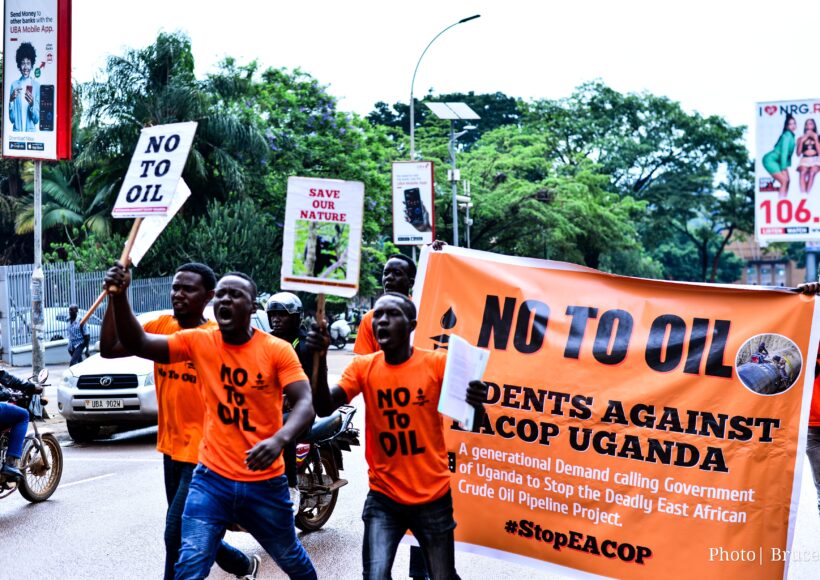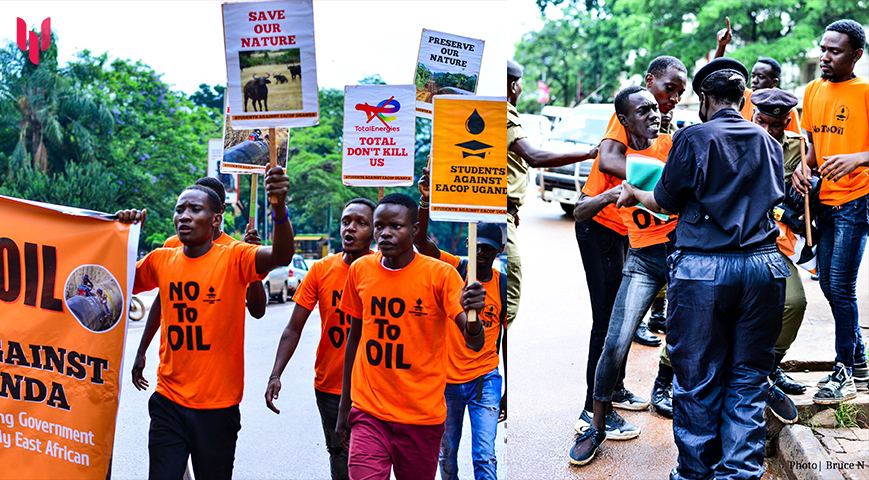Ugandan police arrested 21 environmental activists in the capital, Kampala, on Monday during a protest against a controversial multi-billion-dollar oil development project, according to their lawyer. The East African Crude Oil Pipeline Project (EACOP), led by French oil giant TotalEnergies, involves drilling for oil in Uganda and transporting the crude to Tanzania for export.
Environmental groups have criticized the project, arguing that it poses severe risks to local communities and the environment, particularly because drilling is taking place in Murchison Falls National Park, Uganda’s largest protected area.
Tomorrow at exactly 9:00am, 7 student Activists (our members) will appear for the third time at Buganda Road Court for attempts of bail application after spending 25 days now in jail, Magistrate Nankya Winnie sent them to prison on 28th Nov for engaging in a protest against Eacop pic.twitter.com/GLDxW6dCPp
— Students Against Eacop Uganda🇺🇬 (@Studenteacop) December 18, 2023
Did you read this?
"There are 21 people arrested, including 19 men and two women," said Samuel Wanda, one of the defense lawyers. The group had attempted to march to parliament and the Chinese embassy. Wanda noted that eight of those detained would be directly affected by the TotalEnergies project.
The protesters are currently being held at Kampala's central police station, but charges against them have not yet been specified. In a petition obtained by AFP, the activists issued an "urgent appeal against the continued violations of human and environmental rights by the EACOP project." They argued that the oil project poses a "threat to Uganda's local economies" and has negative "social and cultural impacts."
TotalEnergies, along with the China National Offshore Oil Corporation (CNOOC), is drilling in Lake Albert, which contains an estimated 6.5 billion barrels of crude oil, including around 1.4 billion barrels considered recoverable. The crude will be transported through a 1,443-kilometer (900-mile) heated pipeline from the oilfields in northwestern Uganda to the Indian Ocean port of Tanga in Tanzania.

TotalEnergies holds a 62 percent stake in the pipeline, while state-owned oil companies from Uganda and Tanzania each hold 15 percent, and CNOOC holds eight percent. Uganda's first oil is expected to flow in 2025, nearly two decades after the reserves were discovered. President Yoweri Museveni has praised the project as a significant economic opportunity for the landlocked country, where many people live in poverty.
TotalEnergies claims that those displaced by the project have been fairly compensated and that environmental protection measures are in place.









